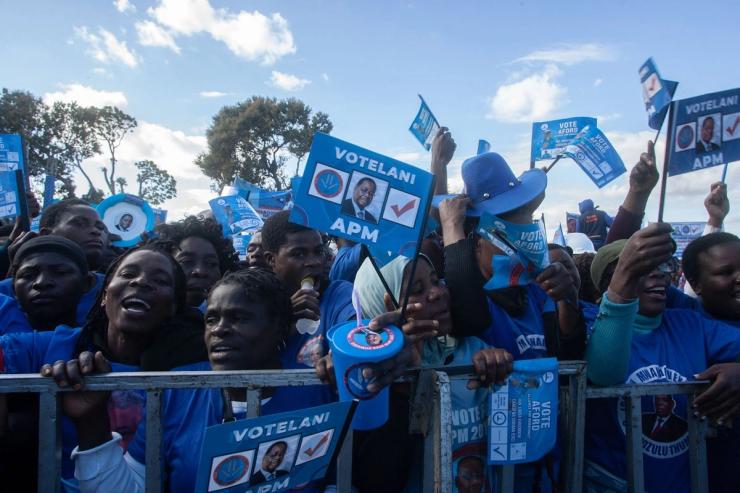The News
As Malawi prepares to vote in next week’s presidential polls, analysts predict that no candidate will secure a majority in the first round of voting after an election campaign dominated by the state of the economy.
President Lazarus Chakwera, seeking a second term in the Sept. 16 election, highlighted his government’s achievements in rolling out megafarms and creating more than 2 million jobs for young people, during his party’s manifesto launch in July. But he also emphasized the challenges his government had faced, pointing to the COVID-19 pandemic, a cholera outbreak, 2023’s Cyclone Freddy, and a drought induced by El Niño climate patterns.
Despite Chakwera’s promises to bring down the cost of farming and restart Malawi’s agriculture-dependent economy, ahead of taking office in 2020, his tenure has been marked by skyrocketing prices of fertilizer and maize, a staple food. With depleting foreign exchange reserves, some businesses have been forced to close as entrepreneurs and farmers turn to the black market in search of hard currency. And in May, the International Monetary Fund suspended a $175 million loan program in Malawi over the government’s inability to fulfill loan review requirements.
Chakwera faces an unprecedented 16 opposition candidates including two former Malawi presidents, Joyce Banda and Peter Mutharika, and Atupele Muluzi, the son of former President Bakili Muluzi. The messages of the opposition candidates vary, but all are calling for radical change.
Hannington Gondwe, CEO of the UK-Malawi Chamber of Commerce, told Semafor that the economy was at the heart of voter’s concerns. Malawi’s “extremely bad” economic state “will influence the electorate’s decision for change or not,” he said.
In this article:
Know More
A lingering concern ahead of the Sept. 16 election is if any candidate will be capable of attaining a majority on the first run. In 2019, Malawi implemented 50+1 electoral law — where a candidate has to secure more than half of all votes to win the election.
Chakwera only won after an unprecedented election rerun as the first polls were annulled by the country’s top court. His party ended up forming an alliance with the United Transformation Movement (UTM) party, whose leader, the former Vice President Saulos Chilima, died in a plane crash last year. That tragedy gave way to discord within the UTM and the exit of key leaders, as well as a dent to the party’s popularity.
Step Back
Malawi’s presidential candidates are not communicating with voters as well as they could, according to some local analysts. The government “is seen as failing to deliver,” while the opposition “are not clearly outlining what they are going to do,” Wonderful Mkhutche, a Lilongwe-based political scientist, told Semafor.
He thinks the election is likely to spark a second round of voting, which will lead to politicians and their teams negotiating alliances to survive: “We’re going to see parties trying to discuss how they can make it during the second round.”
There are also more deep-seated challenges that go beyond the political offering. “Our problems are mostly structural,” said Bertha Bangarla-Chikadza, president of the Economics Association of Malawi, pointing to the need to grow more valuable crops and boost exports.
The View From Zimbabwe
Countries across southern Africa will be watching Malawi’s election, said Lazarus Sauti, a Zimbabwean media researcher and political commentator. “Our hope is that there is going to be transparency and accountability,” he told Semafor.
Notable
- Malawi must uphold the integrity of its election or risk spiraling into democratic decay, the Daily Maverick wrote.


